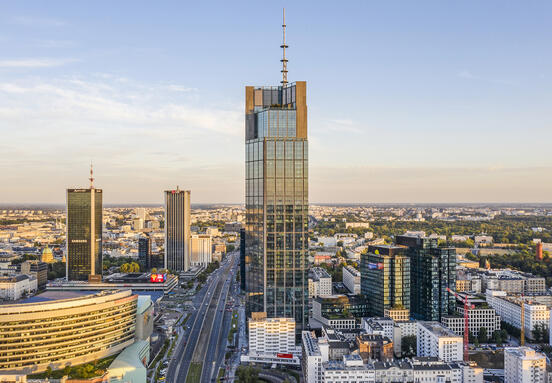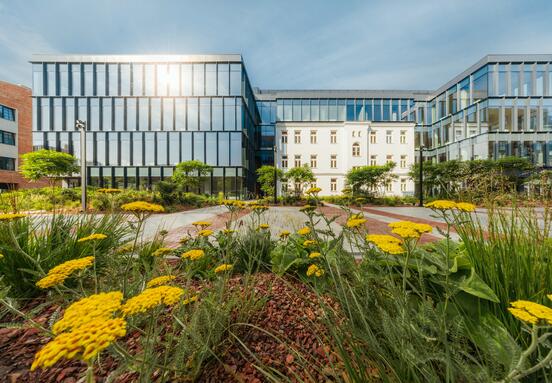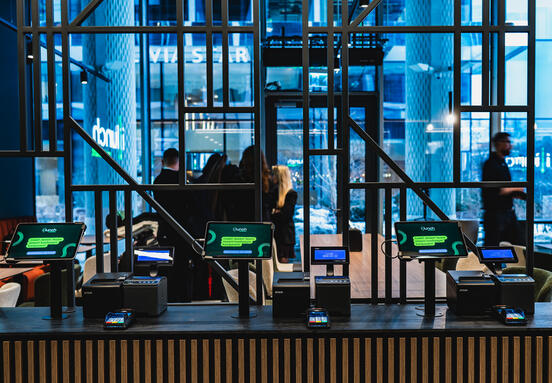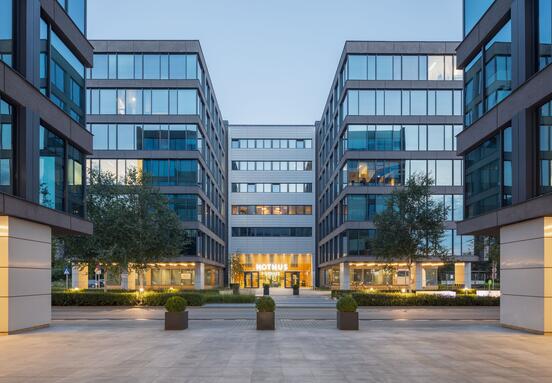Flexibility that pays off
Across Poland’s seven largest cities, there is already more than 420,000 sq m of flexible office space, accounting for over 3% of total office supply. In Warsaw and Kraków, this share reaches around 4%, and the growth trend shows no signs of slowing down.
Rising fit-out costs and evolving work models are fueling demand for flexible solutions. As a result, companies are increasingly viewing flex not as a temporary fix but as a full-fledged workplace model that enables faster scaling and lower risk.
Office as a service
Flexible spaces are part of a broader trend of treating the office as a service (Backend-as-a-Service), where value lies not only in the space itself but also in technology integration, community building, and ESG compliance.
Subscription-based models are becoming increasingly popular – a single monthly fee gives access to offices in multiple locations. Satellite offices, located closer to where employees live, are also on the rise. At the same time, traditional office buildings are increasingly incorporating flex modules, making better use of vacant areas and boosting their market appeal.
Warsaw and Kraków lead the way
Warsaw is the largest flex market in Poland, offering over 235,000 sq m – more than half of the country’s total supply. Kraków ranks second with nearly 70,000 sq m, followed by Wrocław, the Tri-City, and Poznań, with Łódź and Katowice also showing strong growth. Outside the capital, there is nearly 190,000 sq m of flexible offices, translating into around 23,000 workstations.
In Warsaw alone, operators leased 70% more flex space in 2024 than in the previous year. New projects are now being added not only in the capital but also in regional cities, driving further market expansion.
Hybrid work drives demand
Flexible offices perfectly match the needs of the hybrid work model. Tenants focus mainly on central locations, especially those with excellent transport links.
The most sought-after spaces are small to medium modules for 3–15 people (20–200 sq m), but demand for larger units is also growing, particularly among project teams and foreign companies entering the Polish market.
The tenant base is diverse, dominated by IT, e-commerce, marketing, finance, consulting, start-ups, and international corporations. In regional cities, the demand is also driven by technology firms and SSC/BPO centers.
A maturing market
Flex spaces are no longer a niche – they have become a mature market segment with an increasingly diverse demand structure. Vacancy rates for flexible offices remain lower than for traditional office spaces, at around 8–10%.
Operators leverage their agility to commercialize new projects faster than owners of conventional office buildings.
New players and growing competition
Rising demand is attracting new players – local brands such as The Shire, BeIN Offices, and Puzzle Office are entering the market, alongside boutique concepts offering premium services.
Global operators such as Regus, WeWork, Mindspace, and Brain Embassy are expanding their portfolios, while local players like Chilliflex, Loftmill, and OmniOffice continue to grow. Developers are also launching their own brands, including Business Link, CitySpace, and Quickwork.
Today, the offer includes coworking spaces, serviced offices, project-based modules, and virtual offices. The premium segment is also expanding, with brands like Brain Embassy and The Nest delivering high-end design, wellness areas, cafes, event spaces, and concierge services.
How much does flexibility cost?
Pricing varies by city, location, and standard. In central Warsaw, the cost per desk ranges from €300 to €475 per month, while in regional markets it ranges from €200 to €375. These rates typically include all expenses – rent, utilities, cleaning, internet, and access to shared areas.
Tenants expect short commitments (1–3 months), transparent terms, and a quick leasing process. Operators are responding with “pay-as-you-go” models and greater flexibility, even for private offices designed for 10–20 people.
Walter Herz supports the flex market
Walter Herz actively advises companies in finding flexible office solutions – from coworking to private offices – and supports flex operators in leasing space from property owners. The company has been involved in projects such as The Shire in Kraków and BeIN Offices in Poznań, and is currently working on further developments in Wrocław, the Tri-City, and Kraków.
source: prestigepr.pl









